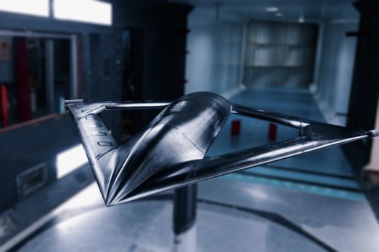
The U.S. Defense Advanced Research Projects Agency (DARPA) has awarded Lockheed Martin Aeronautics $12.1 million US and Aurora Flight Sciences Corp. $12.4 million to begin phase-one of the Control of Revolutionary Aircraft with Novel Effectors (CRANE) project. CRANE’s goal is to develop and flight test a novel X-plane that incorporates Active Flow Control (AFC) as a primary design consideration.
The CRANE project seeks to eliminate control surfaces such as ailerons, rudders, and flaps and replace them with actuators or effectors to add energy or momentum to the flow of air over the aircraft. In this first phase researchers from the two companies will validate analytical predictions, carry out control loop analyses, and perform modeling verification.
CRANE is a shift from passive to active flow control. Passive control involves geometrical modifications such as vortex generators or chevrons. Passive control devices are always on, no matter the need or performance penalty. Active flow control involves energy or momentum addition to the flow in a regulated manner – typically by installing effectors or actuators. It can be activated only when needed.
Late last year, Aurora began Phase 0 in partnership with Boeing and the University of Arizona. The team worked on the tools and technology for incorporating AFC in the early stages of aircraft design to later demonstrate in the custom X-plane. Future phases of the CRANE project will include testing integrated subsystem components, and then fabricating, assembling, ground-testing, and performing flight demonstrations.
Active flow control could improve aircraft performance by removing jointed surfaces, which currently drive design configurations that increase weight and mechanical complexity. Demonstrating AFC for stability and control in-flight would help open the design trade space for future military and commercial applications.
“This team builds upon decades of AFC research and prototyping, including flight tests of full-scale implementations,” said Per Beith, Aurora President and CEO. “Together with DARPA, we can enable fundamentally new approaches to aircraft design and look forward to exploring game-changing configurations.”
